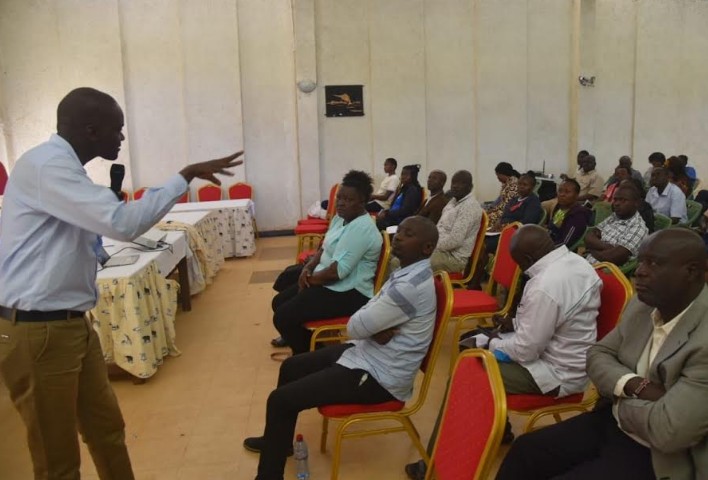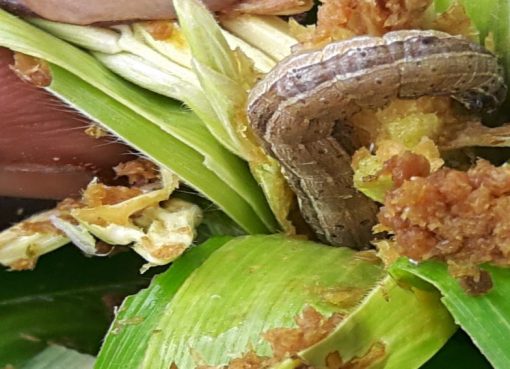The National Biosafety Authority (NBA) is set to hold its 13th annual biosafety conference that will relook at progress so far made in the biosafety sector.
The Conference will be a national dialogue on modern biotechnologies and biosafety matters.
The National Biosafety Authority (NBA) is a state corporation established under the Biosafety Act, Cap 320 of the Laws of Kenya, with the mandate to exercise general supervision and control over the transfer, handling, and use of Genetically Modified Organisms (GMOs) with a view to ensuring the safety of human and animal health and the provision of adequate protection of the environment.
In a statement Wednesday by the Authority prior to the conference, Ag. CEO Nehemiah Ngetich said the highlight will be on the role of biosafety regulations in ensuring that GMOs undergo rigorous risk assessments before approval for research, release, or consumption.
“The discussion will cover international laws, such as the Convention on Biological Diversity and the Cartagena Protocol on Biosafety, as well as national regulatory structures that oversee compliance, risk management, and public engagement,” he added.
Some of the subthemes for the forum, he noted, will be in the area of regulatory frameworks for GMO Safety, which will explore the policies, laws and institutional frameworks governing the safe development, handling and commercialisation of genetically modified organisms (GMOs).
On GMO safety assessment and product labelling, Ngetich said the focus will be on the scientific methodologies used to evaluate the safety of genetically modified organisms (GMOs) before their approval for research, cultivation, or consumption.
“It will cover key aspects of risk assessment, including substantial equivalence, environmental impact, toxicity and long-term health effects, and highlight internationally recognised protocols and national regulatory approaches to ensure GMOs meet safety standards,” he said.
The session will also elaborate on the socioeconomic parameters considered for GMOs’ environmental release and placing on the market, explore the significance of labelling regulations for genetically modified (GM) products for confirmation of safety, promote consumer choice and traceability, and explain how clear labelling fosters public trust, market confidence, and regulatory compliance while addressing challenges such as misinformation and the balance between mandatory and voluntary labelling approaches,” according to the statement.
“The conference will also look at collaborative approaches to GMO research and development, with a focus on the power of multi-stakeholder collaboration in ensuring the safe development and adoption of genetically modified organisms (GMOs),” the CEO said.
It will further highlight the role of public-private partnerships (PPPs) in advancing GMO research, safety assessments and responsible commercialisation through shared safety data, expertise, and resources.
Additionally, Ngetich said that the discussion will focus on how non-governmental organisations (NGOs) and county governments contribute to biosafety advocacy, policy implementation, and community awareness.
“The Biotechnology advances and Emerging Opportunities will examine the latest advancements in biotechnology, including genome editing and synthetic biology, as well as the transformative impact of AI on enhancing research, decision-making, and productivity.
Participants will also gain insights into how AI-powered data analytics are accelerating biotech research, improving crop breeding, optimising supply chains and enhancing biosafety monitoring,” Ngetich said.
The upcoming conference is themed “13 Years Later: Building Trust and Ensuring Safety of Genetically Modified Organisms”.
In 2022, Kenya lifted a decade-long ban on genetically modified organisms (GMOs) to address food security challenges, with the National Biosafety Authority playing a crucial role in regulating GMOs.
The two-day upcoming conference in June comes at a time when controversy surrounding the promotion of Genetically Modified Organisms (GMOs) took a full circle last month after the Court of Appeal overturned earlier rulings lifting the ban imposed on the technology.
The Kenyan Peasants League secured a conservatory order stopping the government from taking any further action to allow the technology and also the importation of crops and food into the country pending determination of their appeal.
By Wangari Ndirangu





